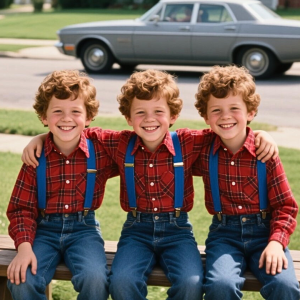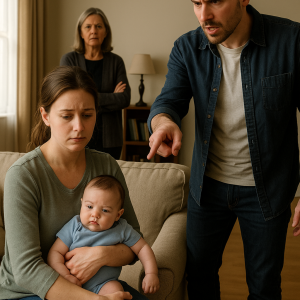I always knew my family would find a way to turn my wedding into a power play. Still, I wasn’t prepared for how far they’d go.
When my parents insisted my sister, Claire, should walk down the aisle before me—wearing a white dress—I thought I’d misheard them.
“Mom, you can’t be serious,” I said, trying to stay calm.
“She’s your sister,” Mom said sharply. “It would mean so much to her. You’ll both look beautiful—like twins. Think of it as symbolic, two daughters walking toward new beginnings.”
I was the younger one, but Claire had always been the favorite—the high-achieving lawyer with the designer wardrobe and the luxury condo in Chicago.
I was just the “artsy” one, teaching in a public school in Portland. When Mom said “symbolic,” I knew what she really meant: Claire deserves the spotlight too.
Then Dad chimed in. “We’re paying for the wedding, Nora. This isn’t up for discussion.”
That was the moment something in me shifted. I realized the only way to survive my own wedding was to smile, nod—and take quiet control.
So I agreed. “Of course, Dad. Whatever you want.”
Claire was thrilled. A week later, she sent photos of her gown—ivory, beaded, extravagant. A bride’s dress, really. Mom called it “angelic.” My fiancé, Adam, looked at me and said, “You’re really letting this happen?”
“Oh, I’m letting it happen,” I said with a small smile. “Exactly as they want it.”
The day arrived, golden and serene at a vineyard just outside Portland. Everything was perfect—until Claire’s car pulled up. She stepped out in that gown, dazzling and confident, my parents glowing beside her.
But before they reached the entrance, two security guards stopped them.
“I’m sorry, ma’am,” one said. “You’re not on the approved guest list.”
My father exploded. “We paid for this wedding! This is outrageous!”
Adam walked over calmly, hands in his pockets, a quiet smile on his face. “She’s not on the list,” he said evenly, “because our policy is simple—no one wearing white except the bride is allowed inside.”
The silence was electric. My parents froze. Claire’s eyes went wide.
“You’re joking,” she said through clenched teeth.
“I’m not,” Adam replied pleasantly. “It’s part of our event protocol. Anyone in white might be mistaken for the bride—it causes confusion for photographers. I’m sure you understand.”
His voice was polite, professional. The same tone Claire used to use on me when I was younger.
My father turned red. “Do you have any idea who paid for this wedding?”
Adam met his gaze. “Yes, sir. And I also know Nora and I reimbursed the venue last week. Your payment was canceled.”
That landed like a thunderclap. My mother’s face went pale. My father looked at me as if I’d betrayed them.
“You went behind our backs?” Mom hissed.
“I didn’t go behind anyone,” I said quietly. “I just wanted peace on my wedding day. You all made it clear what would happen if I didn’t follow your plan. So I did—right to the end.”
Claire’s voice trembled. “You’re really going to bar your own sister?”
“You’re welcome to come in,” I said. “There’s a cream dress waiting for you in the guest house. Your size. Or you can stay out here in white. It’s your choice.”
For once, she had no reply.
As Adam and I walked toward the ceremony, I heard my father shout, “You’ll regret this!”
But I didn’t. For the first time in my life, I felt free.
The ceremony was peaceful, sunlight spilling through the vineyard. When I met Adam’s eyes at the altar, I saw only pride and quiet defiance. For the first time, it felt like my wedding.
The aftermath, of course, was dramatic. Claire refused to change dresses and left. My parents followed soon after, claiming “medical reasons” to save face. But the rest of the day was perfect—filled with laughter, dancing, and relief.
Later that night, sitting in our hotel room overlooking the city, I said, “I guess I burned that bridge.”
Adam smiled. “Maybe. But you built a stronger one on your own.”
In the weeks that followed, messages poured in—some scolding, others secretly congratulating me. One cousin wrote, “About time someone stood up to them.”
Claire eventually texted: You always wanted to be the victim. Now you’ve got your show.
I didn’t reply. I wasn’t looking for a show. I’d just wanted peace.
Months later, my mother called. Her voice was soft, hesitant. “We went too far,” she said. “Your father’s still upset, but… I saw the pictures. You looked happy.”
“I was,” I said simply.
It didn’t fix everything—but it was a start. Claire moved on, engaged again, planning a “small, exclusive” wedding.
Sometimes, when I think back to that day, I still feel that strange mix of fear and freedom—the moment security stopped them, the moment Adam quietly stood by me. It was the first time I truly chose myself.
And in that moment of quiet defiance, my marriage didn’t begin with chaos.
It began with clarity.




